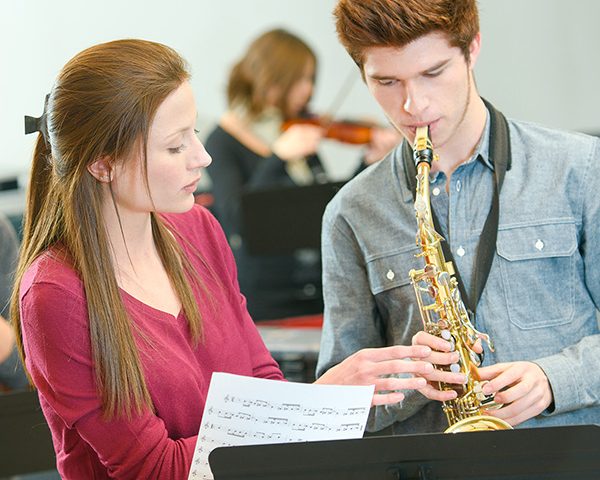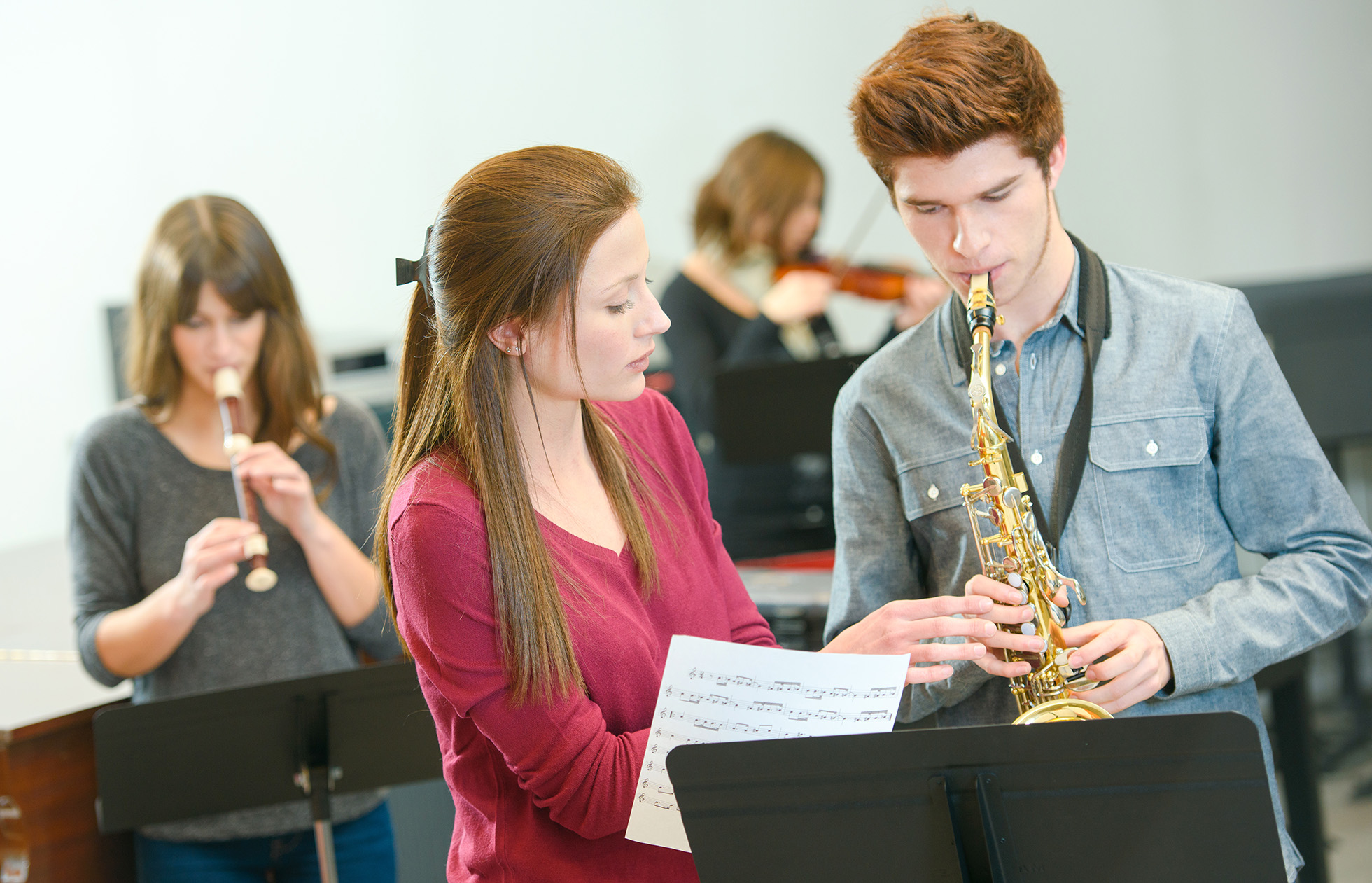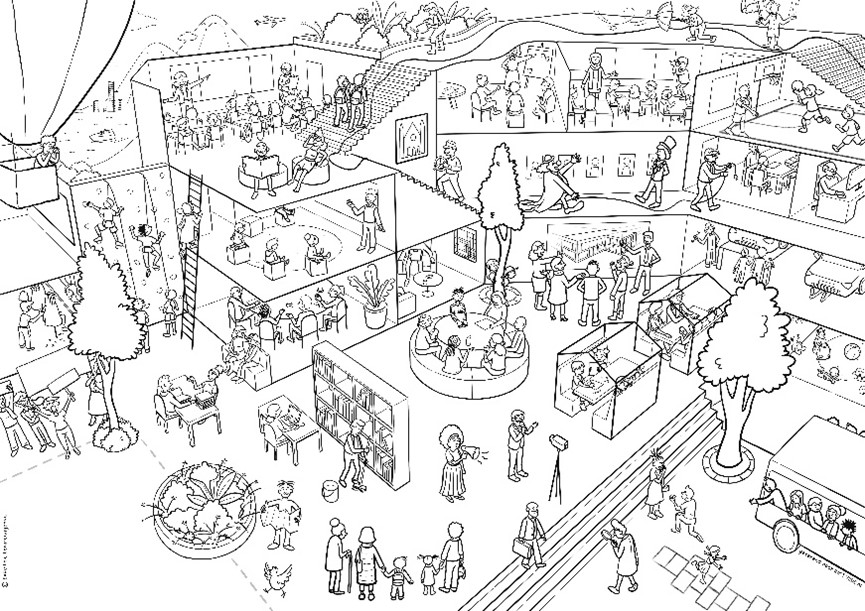Secondary (11-19) and specialist teacher identity in England

21st century creative pedagogy: its importance in teacher education
August 18, 2017
Learning about inquiry
October 23, 2017This report summarises some thinking which arises out of doctoral studies into music teacher biography (Dalladay, 2014) which has potential implications for other subject areas and which was first put forward at a recent conference for the Teacher Education Advancement Network (TEAN).
We are all products of our biography and an important aspect of biography is identity. The research refered to above has suggested that a music teacher is influenced by their, sometimes conflicting, identities as a musician and as a teacher. It is not uncommon for music teachers to consider themselves as musicians first and second as teachers. In interviews with research participants, some of their responses can be summarised as follows:
- Musician (active musician within the community);
- Both musician and teacher;
- Shifting balance from musician to teacher (“teaching is like a performance”);
- Teacher (“the longer I teach, the more difficult it is to be a musician”);
- Both (teacher in the week; musician at weekends);
- Musician (“this is part of my identity”).
How far is this relationship between identities also true for other subjects? How far, for example, does a Science teacher also consider themself as a scientist and how far do these two identities impact each other and the work of the teacher with young people in school? These become important questions when one considers that there may be a relationship between a pupil’s developing identity and that of their teacher.
 The characteristics of self-image, or self-identity, impact on the development of the identity of the musician; and, no doubt, the scientist, mathematician, linguist, and so on
The characteristics of self-image, or self-identity, impact on the development of the identity of the musician; and, no doubt, the scientist, mathematician, linguist, and so on
The characteristics of self-image, or self-identity, impact on the development of the identity of the musician; and, no doubt, the scientist, mathematician, linguist, and so on. These can include the shaping of personality by the environment in which they find themselves (e.g. culture, family, gender, life experiences) which interacts with developing expertise, interests, education and roles. This developing identity can influence, and is influenced by, developing interest in passing expertise and knowledge on to others, taking the teacher role, embarking on teacher training, subsequent entry to the profession, and the values and beliefs which shape what is presented to young people in the classroom. Into this ‘mixing bowl’, external forces also have a role to play including, inevitably, potential tensions and conflicts – local and national policy, curriculum, school values, tutors and colleagues, the pupils themselves (Dalladay, 2014).
Aside from music, other writers on identity of teachers in other curricular areas include Vereals et al (2005) who argue that there is an interplay between teacher and practitioner identity in science teachers, Rø (2016) who sees the transition from mathematician to maths teacher as being represented by the evolving discourse between the ever-changing peer-groups they come into contact with, and Ball (1990) stating unequivocally that there was no way that she “could have become an art teacher without first being an artist.”
From an examination of some of the literature, though, one is left to conjecture whether the distinction between one’s identity as an expert practioner and as a teacher tends to be more marked in the practical and arts curriculum areas (e.g. P.E., art, music, drama) than the others but one also needs to question how far this distinction matters. Wenger (1998) argues that the teacher who displaces their ability to function as a participant in their subject area with the role of (for instance) classroom manager, reduces their capacity to act as adults providing a doorway to the adult world for their pupils. Teachers, he goes on to suggest, need to represent their ‘community of practice’ in the educational setting. “What students need in developing their own identities is contact with a variety of adults who are willing to invite them into their adulthood” (Wenger, 1998: 277).
In initial teacher education (ITE), three principle implications suggest themselves. Firstly, when recruiting to ITE programmes, it needs to be borne in mind that, for young potential trainees entering teaching straight from degree courses, they may have little experience as practising practitioner-experts or in related industries to share with their pupils. Secondly, it is useful to encourage beginning and experienced teachers to reflect on how far their biographies and identities might impact on what and how they teach. Thirdly, schools should be able to facilitate their teachers to ‘act as themselves’; to represent the adult world and communities of practice as a subject expert, not only the community of the institution. In the current increasing culture of compliance observed in educational practice, where teachers are frequently expected to present a homogenised ‘face’ directed by the school governance, this has the potential to be significantly reduced to the detriment of the school’s students.
References
Ball, L. (1990) ‘What role: artist or teacher’. Art Education, 43(1): 54-59, National Art Education Association
Dalladay, C. (2014) The biography of music teachers, their understanding of musicality and the implications for secondary music education. Unpublished PhDThesis: The University of East London
Rø, K. (2016) ‘Investigating mathematics teacher identity development: a theoretical consideration’. Konrad Krainer; Nada Vondrová. CERME 9 – Ninth Congress of the European Society for Research in Mathematics Education, Feb 2015, Prague, Czech Republic, pp.3234-3240, Proceedings of the Ninth Congress of the European Society for Research in Mathematics Education ,hal-01289871
Vereals, M., House, R. & Wenzel, S. 92005) ‘Beginning teachers immersed into science: scientist and science teacher identities’. Science Education, 89: 402-516
Wenger, E. (1998) Communities of practice: learning, meaning and identity. Cambridge: Cambridge University Press






